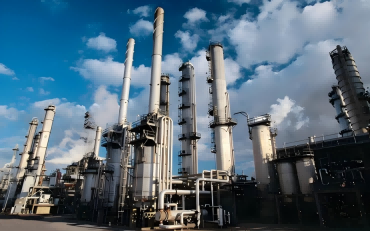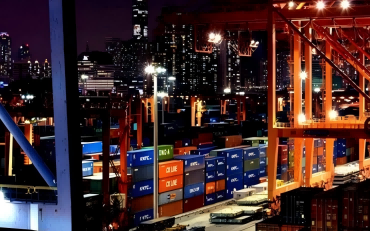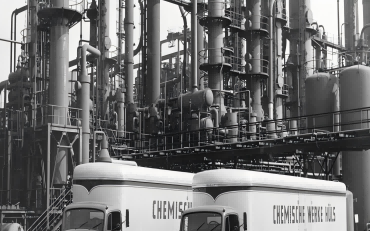Brenntag CEO says Europe must play to its strengths
Europe’s chemical sector is seeing a wave of commodity production closures, which is likely to accelerate as the region is suffering from structurally higher energy costs and depressed margins since it lost access to cheap Russian gas.
There are fears that entire industrial value chains may lose access to essential raw materials and will have to rely instead on imports, which can be subject to logistics disruption. Some have likened the situation to a Jenga tower which will collapse if the wrong piece is removed.
Brenntag CEO Kohlpaintner believes the chemical industry in Europe should steer towards a higher degree of specialization and innovation, making the region a potential leader in specialty chemicals.
He said, “Reinvestments or even new capacity in high energy value chains will not happen in Europe for as long as it does not solve the energy costs topic. The industry will react with a higher degree of specialisation and innovation, as it has in the past, but this adjustment will not go without pain.”
Kohlpaintner believes bold transformational moves will be required by industry leaders in Europe. “The entire chemical industry needs to think about how to reshuffle portfolios to create competitive players going forward. That is an overarching strategic question which the industry needs to figure out: it’s not the doomsday of the chemical industry in Europe, it will be a painful adjustment.”
As the wave of closures gathers pace, Europe will become more of an import destination, especially for commodity chemicals sourced from low-cost and oversupplied countries such as the US and China.
This could create opportunities for distributors such as Brenntag which is already gearing up by acquiring assets which will enable these shifting trade flows.
According to Kohlpaintner, “We believe that trade flows will change: moving LNG from North America to Europe is just the first ambassador of what’s to come. It will gradually go down the value chain.”
The Essentials business has reorganized internally into regions, supported by a global sourcing organization which can take a worldwide view on sourcing to adapt to new trade flows. Brenntag Specialties, on the other hand, is steered by global end use markets.
According to Kohlpaintner, “By breaking down the regional view of our business we can really look at global trade flows and how Brenntag can participate here. We will source still domestically if it makes sense, but we always have alternatives and that is a key strength.”
In December 2023, Brenntag announced it would acquire Solventis Group, a glycols and solvents distributor with access to port facilities at Antwerp in Belgium.
A month earlier the group bought chlor-alkali distributor US Old World Specialty Chemicals, giving it access to sea terminal facilities to enhance its exporting capabilities.
Ewout Van Jarwaarde, CEO of Brenntag Essentials, said, “Brenntag Essentials has implemented a “triple” strategy of leveraging our last mile service operations, regional sourcing and supply chain services and global supply chain capabilities. We are investing into what we call a “tollgate” – these are big transportation hubs with access into regional markets. Here we have sufficient storage capacity to bring in, for example, large vessels into the trade flow between North America and Europe.”
He added, “With this we secure access to supply for those European partners that really need it, and also offer great optimization opportunities in case of energy price or demand fluctuations or supply fluctuations everywhere in the world.”
At a Capital Markets Day in December 2023 Brenntag revealed it would legally split the Essentials and Specialties business to create fully autonomous businesses. The company is under pressure from activist shareholders to spin off its specialties business.
According to Kohlpaintner, “The specialties business model is substantially different from the industrial chemicals business model. This is why we are continuing the disentanglement of our two divisions down to the legal entity disentanglement, to be prepared for further steps.”
“That leads us to a clear conclusion that the legal entity driven full-line distributor model, at least on the scale Brenntag is operating, is obsolete. We need to focus on what our suppliers really need from our Essentials or Specialties divisions. There is very little overlap,” he said.
The CEO believes that by splitting the company, Brenntag will be ready to participate in more distributor consolidation or other strategic moves by 2025/2026.
“We want to be prepared to seek all the opportunities which can arise and for that we need to disentangle first. We need to be ready to play our cards when we need to. The chemical distribution industry is extremely fragmented – we’re still the leader but we have maybe only 5 or 6% market share globally.”
He believes consolidation will gain speed and will happen in bigger steps.
Many of the larger distributors are private equity owned and by definition this ownership will be limited in time as these groups seek an exit from their investments.
The CEO prefers to continue with the strategy of bolt on acquisitions which need to become bigger as Brenntag itself grows. The company aims to spend €400 million to €500 million per year on M&A.
“Nobody in the industry is deploying annual M&A funds on the level of Brenntag. In cases where larger combinations are possible and make sense, we also would know how to manage overlaps. But we continue to prefer bolt-on acquisitions at this time” he said.


